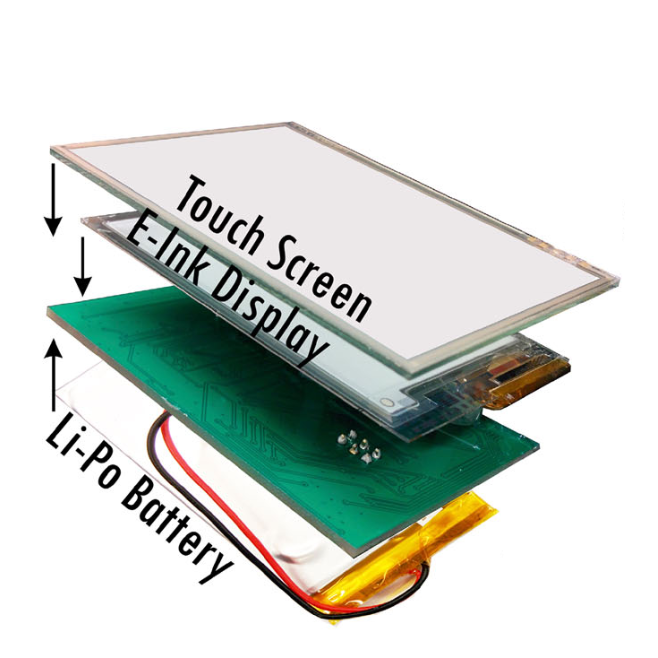PostBits

Reimagining Information Access through Non-Invasive Contextual Displays
The pervasive nature of digital information, while essential, can disrupt our focus and attention in the physical world. PostBits addresses this tension by exploring the value of non-invasive, contextual displays that seamlessly blend relevant information into a user's environment. Recognizing the limitations of existing systems, PostBits was designed from the ground up to facilitate real-world field studies, enabling participants to interact organically with this new mode of information access. At the center of non-invasive ubiquitous computing, PostBits seeks to reconcile the relationship between cloud-based information and physical spaces.PostBits utilizes small, wirelessly connected E-Ink displays strategically placed within a user's environment. Key design principles included extreme energy efficiency, robust connectivity, and intuitive user interaction through a touchscreen and accelerometers.
Hardware design emphasized low-power components, including a microcontroller, microSD card, touch panel, and accelerometer. Careful power consumption analysis ensured long battery life. Embedded firmware managed display functions, power optimization, Zigbee communication, and input handling. A central server interfaced with cloud-based data sources, coordinating content distribution across the PostBits network.
PostBits benefited greatly from a multi-institutional collaboration with MIT, Saarland University, and others, fostering a rich exchange of expertise. Field studies provided unique insights into user preferences for location-specific information, demonstrating the value of real-world deployment over lab-based research. PostBits's findings were presented in the Personal and Ubiquitous Computing Journal.
- Software Engineering
- Hardware System Design
- Rapid Prototyping
- Machine Learning
- Project Management
- C
- C++
- C#
- Unity 3D
- Unreal Engine
- Android
- Python
- Java
- Kotlin
- Assembly
- HDL
- Embedded Linux
- Altium Designer
- LTspice
- Cadence OrCAD
- Adobe Illustrator
- Adobe Photoshop
- Adobe Premiere Pro
- Figma
Augmented Human Lab
Website
Personal and Ubiquitous Computing Journal (Pers. Ubiquitous Comput. 2016)
PDF